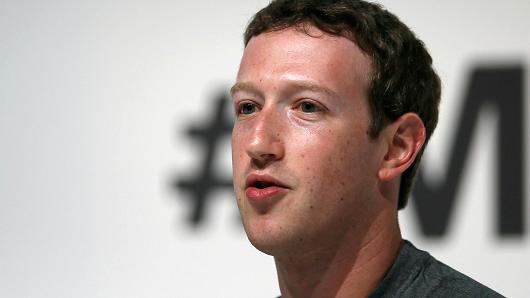Mark Zuckerberg addressed growing criticism of Facebook’s ascendant power to sway public opinion, saying the “small amount” of fake news that spread on the social network during the election did not influence the outcome.
“To think it influenced the election in any way is a pretty crazy idea,” Zuckerberg said Thursday evening during the Techonomy conference in Half Moon Bay, Calif.
Zuckerberg said people underestimated support for president-elect Donald Trump. “I do think there is a certain profound lack of empathy in asserting that the only reason someone could have voted the way they did is they saw some fake news,” Zuckerberg said. “If you believe that, then I don’t think you have internalized the message the Trump supporters are trying to send in this election.”
More from USA Today:
Obama says he and Trump had ‘excellent conversation’
Islamic State celebrates Donald Trump election victory
Trump’s enemies are already paying the price
Zuckerberg’s remarks came as Trump’s presidential win prompted Silicon Valley soul searching with some wondering whether the tools created here had run amok.
Tech investor Dave McClure, founder of the business accelerator 500 Startups, called technology “a propaganda medium” that has contributed to the growing spread of fake information. Social media seems to have also contributed to the dramatic rise in abuse and harassment on the Internet.
“People aren’t aware of the [expletive] they’re being told,” he said at the Web Summit in Lisbon, Portgual, addressing Trump’s victory.
“It is a very good thing if people in Silicon Valley are contemplating the consequences of the inventions they delivered to an unsuspecting world,” Silicon Valley forecaster Paul Saffo said. “The fact that there’s any reflection going on at all is a very good sign. There has long been this naive view that technology is neutral and there’s nothing neutral about technology. The problem is we can never figure out which way it’s going to cut until it arrives.”
Earlier in the day, Facebook responded to the spread of fake articles during the election, saying it takes the problem “very seriously” and pledged it would root out misinformation in people’s News Feed and in trending topics.
“We value authentic communication, and hear consistently from those who use Facebook that they prefer not to see misinformation,” Adam Mosseri, Facebook’s vice president of product management, said in a statement.
Despite Facebook’s efforts, “we understand there’s so much more we need to do,” Mosseri said.
Social media has become a go-to news source. Nearly half of Americans get their news from Facebook, according to the Pew Research Center. Only two in 10 U.S. adults get news from print newspapers.
Fake news is a longstanding challenge for Facebook, but the spread appeared to accelerate during the election, so much so that President Obama addressed it at a Hillary Clinton rally Monday in Michigan.
“And people, if they just repeat attacks enough, and outright lies over and over again, as long as it’s on Facebook and people can see it, as long as it’s on social media, people start believing it. And it creates this dust cloud of nonsense,” he said.
On Election Day, fake accounts spread misinformation on Twitter to suppress voter turnout or to influence how people vote, keeping Twitter busy trying to delete them all.
On Facebook, a former product designer Bobby Goodlatte said the News Feed fueled “highly partisan, fact-light media outlets,” helping elect Trump.
“News feed optimizes for engagement,” Goodlatte wrote, according to Bloomberg News. “As we’ve learned in this election, bullshit is highly engaging.”
In response to Goodlatte, Andrew Bosworth, a Facebook executive who helped create News Feed, said it isn’t perfect. “But it is at least or more diverse than the alternatives which dominated consumption in the late nineties.”
Facebook said 115.3 million users generated 716.3 million posts, likes and comments about the election. Twitter said more than 75 million election-related tweets coursed through its service on election day, more than double than on election day in 2012.
Facebook insists it’s not a media company. Earlier this year it dumped its news curators after a news report accused them of favoring mainstream media over conservative media. Under the Communications Decency Act, it’s not legally responsible — the users themselves are responsible — for the content that spread through its network.
Facebook says its users are exposed to a multitude of different viewpoints in their News Feed, but observers say social media filters out content that people don’t want to see in favor of those that reaffirm their own beliefs and isolate them in politically partisan bubbles
“All the research that we have suggests this isn’t really a problem,” Zuckerberg said Thursday.
The rise of Trump, and his predilection for no-holds barred, bombastic tweeting, has coincided with the increase in trolling, abuse and harassment, on Twitter.
Trump, who has more than 14 million followers, put the social media service on the election map. Even the news that his aides had to take away his Twitter account in the waning days of the election made national news. But Twitter was also criticized for a massive rise in hate speech. And the spread of misinformation undercut Twitter’s election-season success.
source”gsmarena”







